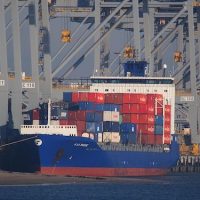
Countries like Canada with self-declared climate ambitions face a serious challenge: how to ensure their emission reduction plans don’t drive industries and investment to countries with weaker carbon standards and lower costs. The federal government is currently consulting on how to prevent this “leakage” and keep Canadian industry competitive with a tool known as border carbon adjustments (BCA).
A federal discussion paper, Exploring Border Carbon Adjustments for Canada, frames the issue and outlines the factors that could shape the design of a BCA. The federal finance department is looking for input by January 31.
BCAs are designed to level the playing field between Canadian industries and their international competitors by making sure they both pay equivalent costs for their emissions. In some cases, that can mean giving Canadian producers rebates on the carbon price they pay. Either way, one of the goals of a BCA is to push other countries to adopt or strengthen carbon pricing and other measures to drive faster, deeper carbon cuts.
Over time, the risk to international competitiveness will be eased if all countries adopt a standardized approach to carbon pricing. But until that happens, “it’s hard to see how Canada meets its climate targets without a BCA system of our own,” says Michael Bernstein, executive director of Clean Prosperity, a Canadian non-profit that works toward market-based solutions to the climate crisis.
Carbon pricing and international trade specialists have come up with a possibly uniquely complex bit of jargon, emissions-intensive and trade-exposed (EITE), to describe the industries at greatest risk if they pay a higher price on pollution than their counterparts in other countries. According to a report by Clean Prosperity and the International Institute for Sustainable Development, Enabling Climate Ambition [pdf], Canada’s EITE industries include the tar sands/oil sands, pulp and paper, basic chemicals, synthetic crude oil, and conventional crude. The report says these sectors account for 34% of Canada’s greenhouse gas emissions and 18% of the country’s exports.
Countries generally begin paying closer attention to BCAs as they speed up their climate ambition and increase their carbon prices—as Canada is proposing to do with a price of C$50 per tonne this year, rising to $170 by 2030. So far, Ottawa has protected EITE industries from competitive disadvantage with a partial exemption from carbon pricing, but that weakens the overall effort to decarbonize the economy. “Canada would get 50% more emission reductions by removing the discount and instead applying the full carbon price to heavy industry,” Bernstein writes.
Though BCAs make sense in theory, they can be tough to implement, with lots of obstacles to be dealt with along the way. The federal discussion paper lays out four main objectives:
• Reduce the risk of carbon leakage;
• Maintain the competitiveness of domestic industries;
• Support greater domestic climate ambition;
• Drive international climate action.
One challenge for Canada is the patchwork of carbon pricing systems across provinces and territories. The design of a BCA must factor in international trade agreements and laws, and potential impacts on the Canadian economy. Ottawa will also need methods to determine the carbon content of different products and the value of emission reductions, and decide whether the calculation should include indirect as well as direct emissions.
Clean Prosperity and IISD recommend consulting widely within Canada, checking in with trade partners (particularly the United States and the European Union), and “future-proofing” the design so it can adapt to changing circumstances.
It’s also worthwhile to address the automatic complexity that surrounds any conversation about BCAs. “Simplify where possible,” the two organizations advise. “A BCA involves many complex choices. The need to satisfy a wide array of stakeholders will create the temptation to design bespoke rules for each industry, or even each trading partner. Where possible, that temptation should be resisted.”
Clean Prosperity and IISD are urging the government to move quickly on BCAs, since it will take several years to get one in place.




